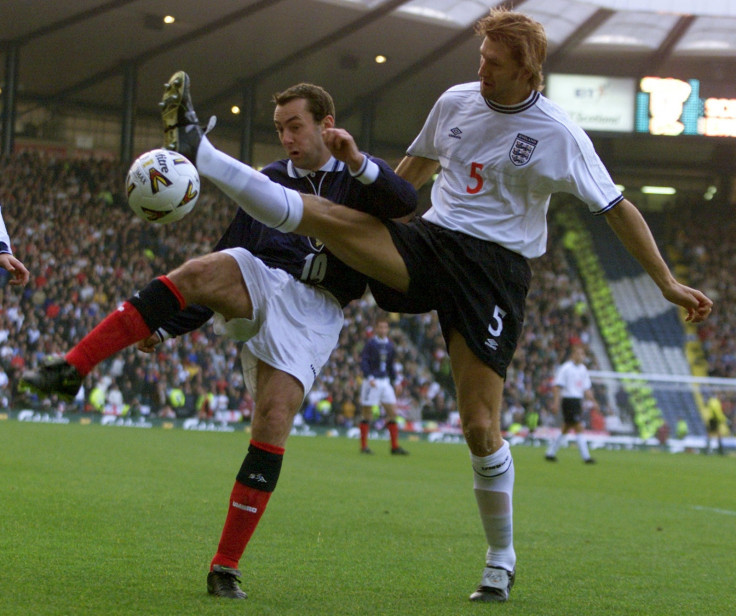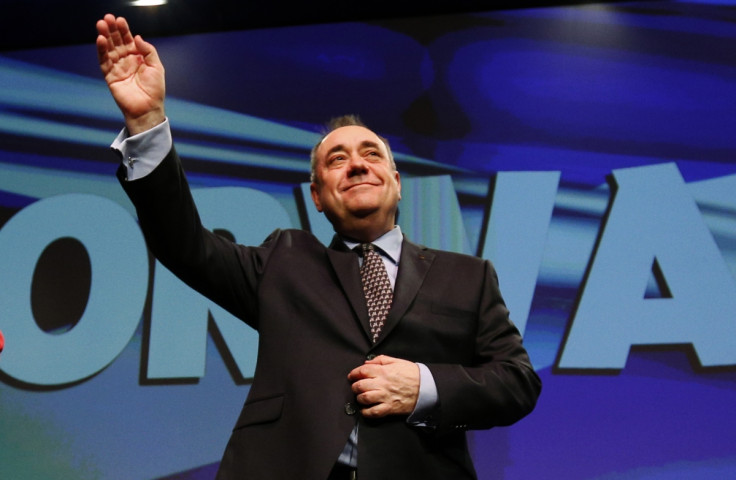Scotland vs England: A Litmus Test For Post-Independence Referendum Relations

It'll be the first time the England football team has played against Scotland above the border in fifteen years.
More importantly, it's the first mass meeting of the English and Scottish since the impassioned independence referendum in which Westminster won out, to the angst of Scottish nationalists.
The match, a "friendly", will be something of a litmus test for English-Scottish relations in the referendum's aftermath, a vote in which 45% of the turnout wanted to split from the UK.
So it's no surprise that the Scottish police is launching a huge security operation, one of the largest it has ever seen, because senior officers expect there to be trouble between fans.
All police leave has been cancelled and officers from other areas, including in England, are being drafted in.
Chief Superintendent Andy Bates, local policing commander for Glasgow, said his force had received intelligence of "pre-planned disorder" between football hooligans.
And Uefa, the governing body of European football, has even given the match the highest possible security risk rating because of tensions between English and Scottish nationalists.
Adding to the troubling setting is the match venue: Celtic Park. There's a historic sectarian rivalry between Celtic and Rangers, Glasgow's two big teams.
Celtic draws its support from the Irish Catholic community, while Rangers is backed by Protestant Unionists. There has often been violence between the two fan bases when the teams meet in matches known, as the Old Firm derby.
1999
There's a precedent, though it occurred without the political backdrop to the latest game. In 1999, the last time the two teams met in Scotland, there were 230 arrests.
Fans fought around Hampden Park, the home ground of Queen's Park FC, and elsewhere in Glasgow.
Bates told the Daily Record that though the security effort had been ramped up, they were not anticipating the same level of arrests as in 1999, adding that "we're not talking about riots in the city".
"Over the years, England have had problems with their travelling support in particular and that is what we have to be alive to," he said.
"We have to be on top of our game to be sure it doesn't become a problem."

Referendum
Many Scots were crestfallen after the referendum result on 18 September, an end to a campaign in which Alex Salmond, the former leader of the Scottish National Party (SNP), had fought hard to make the case for independence.
There were several arrests in Glasgow, a broadly nationalist and pro-independence city, in the hours after the result as weary and frustrated voters sought a release.
Though many Scots made their case on political and economic grounds, the ancient rivalry between Scotland and England was evident in parts of the debate both sides of Hadrian's Wall.
And that debate is far from over. Nicola Sturgeon, the newly elected leader of the SNP, is keen to keep independence on the agenda and build on the 45% support base.
In the heat of the referendum which Westminster party leaders thought for a while they would lose, more devolution of power to Scotland was promised.
Having tasted some victory at least, Scots are not resigned to the result. Many are still actively campaigning for greater powers, with a view to independence further down the line.
The Match
The coals are lit. An international football match so close to the referendum, with many nationalists' wounds still healing, could stoke the fire into an inferno.
Fans taunting each other in the terraces and on the streets. Drinking on the trains up to Glasgow and in the pubs before and after, more fuel for the flames. And moods can shift in a moment during football matches: the controversial refereeing decision, a brutal tackle, a last minute penalty.
The match has the potential to explode. But there's another side to football, one we've seen more of in recent years, of good-natured teasing and joviality. Hooliganism is broadly on the decline.
And the independence debate had its good-humoured moments too. Like the man who followed the pro-UK delegation of Labour MPS parading through Glasgow and played the Imperial March from Star Wars while yelling "bow down to your imperial masters".
There will be the usual exchange of chanting and singing between the two sets of fans. And these will probably have an added independence flavour. But the police will be on hand to quell any trouble that erupts. Hopefully they won't need to.
© Copyright IBTimes 2024. All rights reserved.






